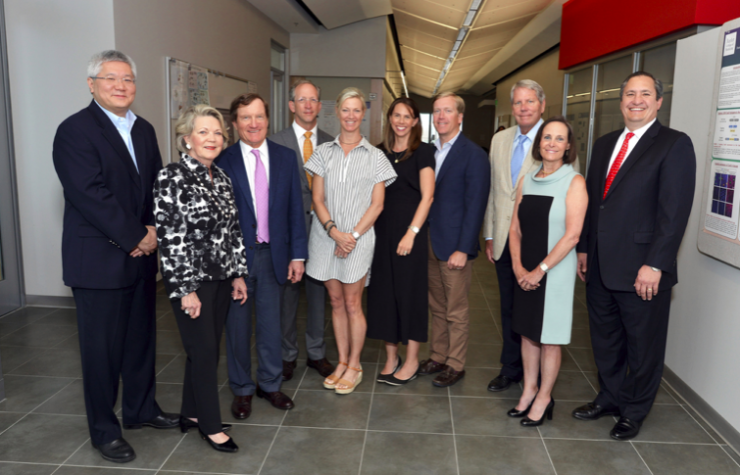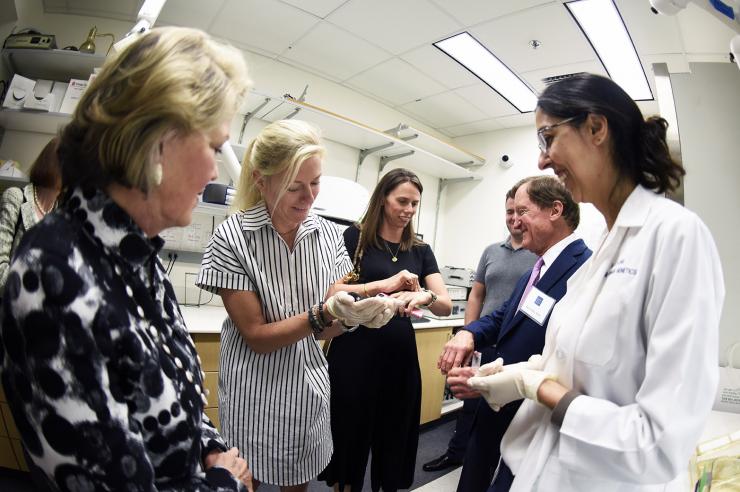Pamela and David Ott Center of Excellence in Heritable Disorders of Connective Tissue and Ehlers-Danlos Syndrome

With the support of the Pamela and David Ott Fund and the John M. O'Quinn Foundation, The Pamela and David Ott Center of Excellence in Heritable Disorders of Connective Tissue and Ehlers-Danlos Syndrome was established at Baylor College of Medicine to pursue cutting-edge research in the field of heritable connective tissue disorders with focus on Ehlers-Danlos Syndrome.
The center, led by Dr. Brendan Lee, was built on the strong scientific and clinical foundations of the Department of Molecular and Human Genetics at Baylor College of Medicine and the Texas Medical Center. The strengths of the center are found in the advanced genetics research in the field of heritable disorders of connective tissues within the laboratory of Dr. Brendan Lee, the research infrastructure within the Rolanette and Berdon Lawrence Bone Disease Program of Texas and the broad expertise of the members of the Center for Skeletal Medicine and Biology.
Research Activities

The research goal of the center is to understand the causes of Ehlers-Danlos syndrome (EDS) and to develop new treatments for the manifestations of this disease.
The research activities are currently focused on studying the mechanisms that result from type V collagen mutations in patients with Classical EDS and on identifying the mechanisms that cause Hypermobile EDS.
In both cases, center researchers are taking a multi-omic approach for studying animal models and patients’ cells to identify targets for treatment.
Clinical Care
Children with conditions that affect the bony skeleton are seen in the Texas Children’s Hospital Skeletal Dysplasia Clinic led by Dr. Brendan Lee.
Types of Ehlers-Danlos Syndrome Under Study
Classical Ehlers-Danlos syndrome (cEDS)
Classical Ehlers-Danlos syndrome (previously known as EDS type I/II) is an inheritable connective tissue disorder that involves skin, tendons, ligaments, and, in some cases, also blood vessels. Most cases are caused by mutations in the genes encoding for the subunits composing type V collagen, an essential component of the extracellular matrix in many of the connective tissues in the body. Individuals with classical EDS usually present with hyperextensible skin and atrophic scars and hypermobile joints.
Hypermobile Ehlers-Danlos syndrome
Hypermobile Ehlers-Danlos syndrome (also known as Ehlers-Danlos syndrome type III) is an inheritable connective tissue disorder involving mainly the joints with hypermobile joints and chronic musculoskeletal pain. Associated extra skeletal symptoms might involve multiple systems including autonomic dysfunction with postural orthostatic tachycardia syndrome (POTS), gastrointestinal problems, and more. The genetic cause for this condition is unknown and the biological processes driving the clinical symptoms in this syndrome are poorly understood. For these reasons, the diagnosis of this condition is based only on clinical evaluation at this time.








